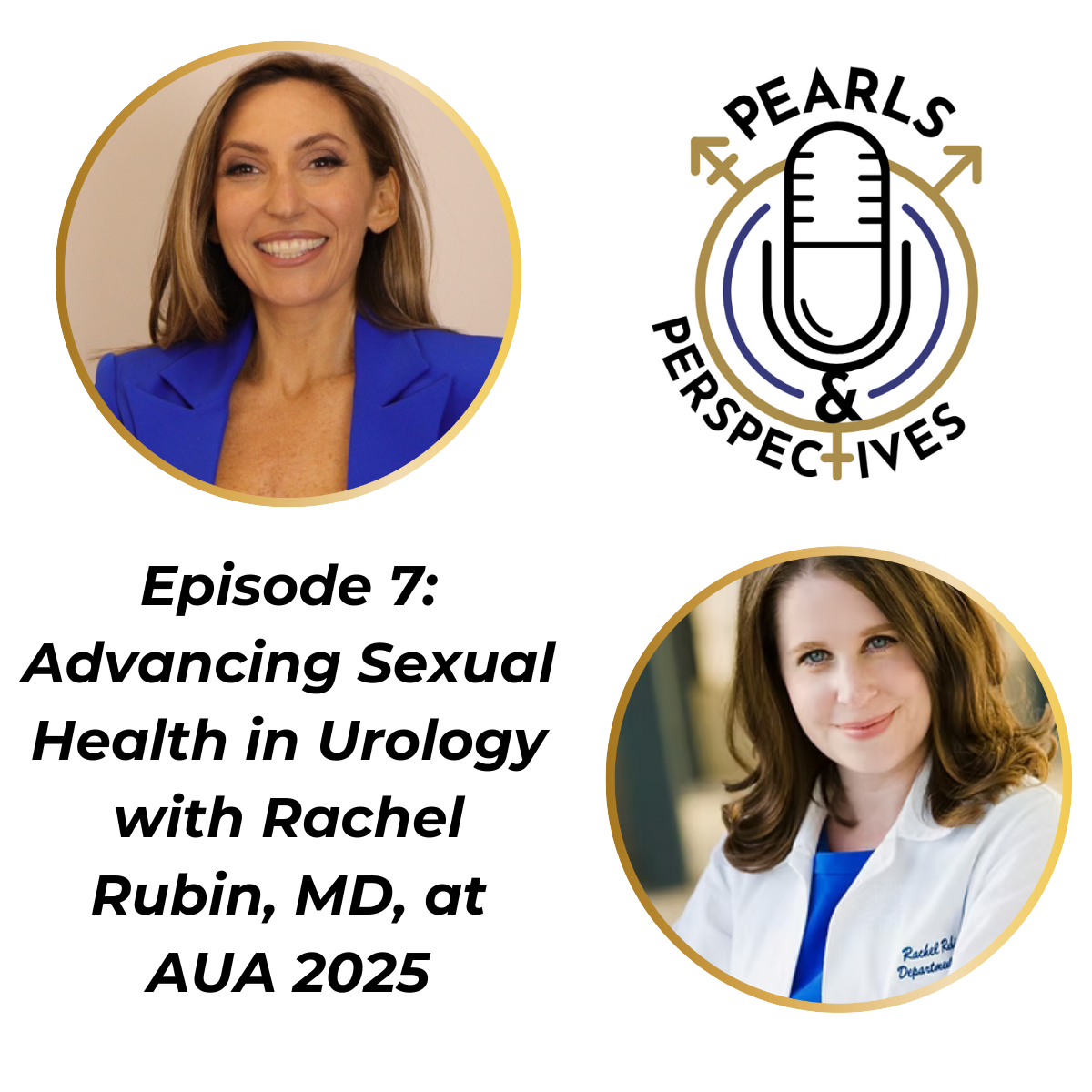madman
Super Moderator
* Rubin offers insight into the guideline development process, which involved collaboration across multiple societies—including AUA, SUFU, AUGS, the Menopause Society, and ISSWSH—and incorporated patient perspectives alongside clinical evidence. The guidelines advocate for broader recognition of GSM as a urologic issue with systemic impact, including increased risk of recurrent UTIs, sepsis, and hospitalizations. Rubin underscores the evidence linking vaginal estrogen therapy to improved outcomes and reduced Medicare costs, pushing back on long-standing misconceptions about hormone therapy safety.


 www.urologytimes.com
www.urologytimes.com
In this episode of Pearls & Perspectives from Urology Times, Amy Pearlman, MD, interviews Rachel Rubin, MD, a urologist and fellowship-trained sexual medicine specialist, about advancing sexual health education and care delivery. Speaking from the American Urological Association's (AUA) 2025 Annual Meeting in Las Vegas, NV, Rubin discusses her leadership in two key courses—one addressing the diagnosis and management of pelvic pain across all patient populations, and another supporting the rollout of new AUA guidelines on genitourinary syndrome of menopause (GSM).
Rubin offers insight into the guideline development process, which involved collaboration across multiple societies—including AUA, SUFU, AUGS, the Menopause Society, and ISSWSH—and incorporated patient perspectives alongside clinical evidence. The guidelines advocate for broader recognition of GSM as a urologic issue with systemic impact, including increased risk of recurrent UTIs, sepsis, and hospitalizations. Rubin underscores the evidence linking vaginal estrogen therapy to improved outcomes and reduced Medicare costs, pushing back on long-standing misconceptions about hormone therapy safety.
The conversation expands beyond AUA initiatives, as Rubin details her efforts to address the lack of sexual health training in urology and primary care. Through her virtual sexual medicine research collaborative, Rubin mentors medical students nationwide on topics ranging from sexual dysfunction in autoimmune diseases to genitourinary syndrome of lactation (GSL)—a condition she and her team helped define. She also highlights the importance of translating research into advocacy, noting how one of her team’s health economics papers was recently cited in state-level policy discussions.
Rubin emphasizes that empowering clinicians with actionable knowledge is key to improving care. Her educational content—ranging from online CME courses to public-facing talks—focuses on practical skills, prescription guidance, and risk framing to help providers treat patients more confidently. At a time when gaps in women’s sexual health care remain wide, Rubin’s message is clear: evidence-based care exists, and urologists must be equipped to deliver it.

Pearls & Perspectives: Advancing sexual health in urology, with Rachel Rubin, MD, at AUA 2025
Rachel Rubin, MD, discusses advancements in sexual health education and guidelines at the AUA meeting.
In this episode of Pearls & Perspectives from Urology Times, Amy Pearlman, MD, interviews Rachel Rubin, MD, a urologist and fellowship-trained sexual medicine specialist, about advancing sexual health education and care delivery. Speaking from the American Urological Association's (AUA) 2025 Annual Meeting in Las Vegas, NV, Rubin discusses her leadership in two key courses—one addressing the diagnosis and management of pelvic pain across all patient populations, and another supporting the rollout of new AUA guidelines on genitourinary syndrome of menopause (GSM).
Rubin offers insight into the guideline development process, which involved collaboration across multiple societies—including AUA, SUFU, AUGS, the Menopause Society, and ISSWSH—and incorporated patient perspectives alongside clinical evidence. The guidelines advocate for broader recognition of GSM as a urologic issue with systemic impact, including increased risk of recurrent UTIs, sepsis, and hospitalizations. Rubin underscores the evidence linking vaginal estrogen therapy to improved outcomes and reduced Medicare costs, pushing back on long-standing misconceptions about hormone therapy safety.
The conversation expands beyond AUA initiatives, as Rubin details her efforts to address the lack of sexual health training in urology and primary care. Through her virtual sexual medicine research collaborative, Rubin mentors medical students nationwide on topics ranging from sexual dysfunction in autoimmune diseases to genitourinary syndrome of lactation (GSL)—a condition she and her team helped define. She also highlights the importance of translating research into advocacy, noting how one of her team’s health economics papers was recently cited in state-level policy discussions.
Rubin emphasizes that empowering clinicians with actionable knowledge is key to improving care. Her educational content—ranging from online CME courses to public-facing talks—focuses on practical skills, prescription guidance, and risk framing to help providers treat patients more confidently. At a time when gaps in women’s sexual health care remain wide, Rubin’s message is clear: evidence-based care exists, and urologists must be equipped to deliver it.














